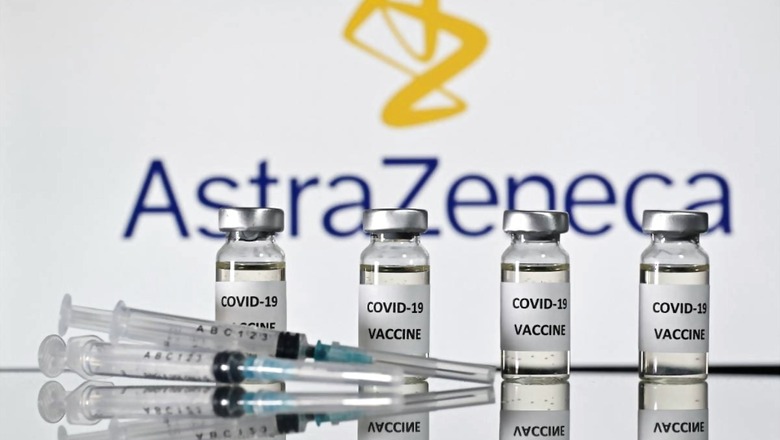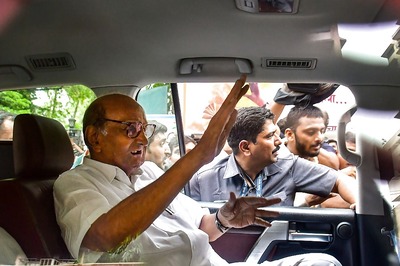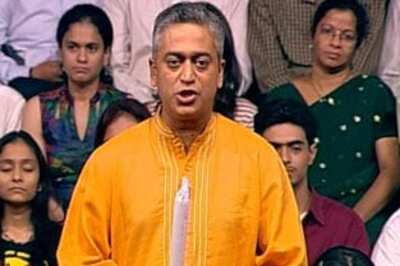
views
In the past few days, several countries including Germany, Italy, Spain, Ireland, and France have suspended the rollout of the Covid-19 vaccine developed by Oxford University and British-Swedish pharmaceutical firm AstraZeneca. The decision was taken following concerns about deep vein thrombosis, pulmonary embolism, and blood clotting.
However, the AstraZeneca inoculation drive continues across several other countries including the United Kingdom. Of the approximately 17 million doses administered, there have been 15 instances of deep vein thrombosis and 22 events of pulmonary embolism reported in the European Union and the UK, The Gurdian report stated.
Taking cognizance of the concerns, the World Health Organisation experts on Wednesday recommended countries continue to use the AstraZeneca vaccine but said they were looking into the jab’s safety.
Which Countries Have Banned the Vaccine Rollout?
Norway, Denmark, Netherlands, Ireland, Spain, Bulgaria have suspended the rollout of the vaccine, while Italy, Austria, Estonia, Latvia, Luxembourg, and Lithuania have stopped inoculations from one particular batch of 1m doses that was sent to 17 countries.
On What Grounds Astrazeneca Vaccine has been Banned?
The vaccine rollout was suspended after reports of a rare blood clot in the brain called cerebral venous sinus thrombosis, or CVST, affected some patients in Europe. Similar cases were found in Norway, and Germany. On the basis of results from Germany, French officials defended the decision to suspend the vaccine’s use, citing a “small number of unusual side effects.” Italy, like others, said its move was “precautionary” until European regulators have a chance to carry out their assessment of new data.
Is the Vaccine Causing These Issues?
AstraZeneca in an official statement on Monday stated that the rate of deep vein thrombosis and pulmonary embolism across the millions of people vaccinated is “much lower than would be expected to occur naturally in a general population of this size and is similar across other licensed Covid-19 vaccines”.
“The nature of the pandemic has led to increased attention in individual cases and we are going beyond the standard practices for safety monitoring of licensed medicines in reporting vaccine events, to ensure public safety,” chief medical officer of AstraZeneca, Ann Taylor told The Guardian.
What Have Indian Regulators Said?
India on Wednesday backed the AstraZeneca vaccine and said its coronavirus immunisation campaign would continue with ‘full rigour’ despite some concerns in Europe about the safety of the vaccine. Ever since the inoculation drive has been initiated in India, as many as 36 million vaccine doses have been administered, which are mostly the AstraZeneca shots developed with Oxford University and locally known as Covishield. “We have no signal of concern in this regard,” Vinod Kumar Paul, who heads a government committee on vaccines said.
Does Politics Play a Part Here?
The reaction of European countries is about more than vaccine safety, an accusation coming from Britain in particular, a Washington Post (WP) report claims. Developed in Britain in collaboration with Oxford University- the AstraZeneca vaccine can be termed as the first ground-breaking achievement of the UK post-Brexit. In Germany, just over 8 percent of people have had a first vaccine dose, compared with more than 40 percent in the United Kingdom.
The WP report also stated that suspending AstraZeneca hurts Europe as much as anyone. The German government which is under enormous pressure to get vaccinations rolled out as the country faces rising infections, the government is no doubt mindful of forthcoming elections as anger over the slow rollout of vaccination mounts. The easier-to-administer AstraZeneca vaccine was a major part of vaccination plans across Europe, with Brussels expressing fury over delays and disruptions to its orders.
Is European Medical Body Convinced with AstraZeneca?
The European Medicines Agency remains ‘firmly convinced’ of the benefits of AstraZeneca’s coronavirus vaccine. Its head, Emer Cooke on Tuesday pointed out that blood clots highlighted by some countries were relatively common in the general population. “I want to stress at present there is no indication that vaccination has caused these conditions,” she said. In a joint statement later on Tuesday, French President Emmanuel Macron and Italian Prime Minister Mario Draghi said the EMA’s comments were “encouraging”. However, the European Medicines Agency (EMA) will release its findings on Thursday.
How bad is the pandemic in Europe?
The intense divisions over the AstraZeneca jab are being widely criticized as the countries are struggling to contain the surge in coronavirus cases. Italy recorded 502 coronavirus deaths on Tuesday, the highest figure in nearly two months. On Wednesday, Hungary registered its daily coronavirus death record and Poland announced a nationwide lockdown until early April.
Infections in Germany are growing “exponentially”, with cases up by 20% in the past week, an expert from the RKI public health agency warned on Tuesday. While in France, Prime Minister Jean Castex said the widespread prevalence of three Covid-19 variants meant the country was now in ‘a sort of third wave’. Around 575,000 people in the European Union have died due to coronavirus.
Read all the Latest News, Breaking News and Coronavirus News here




















Comments
0 comment